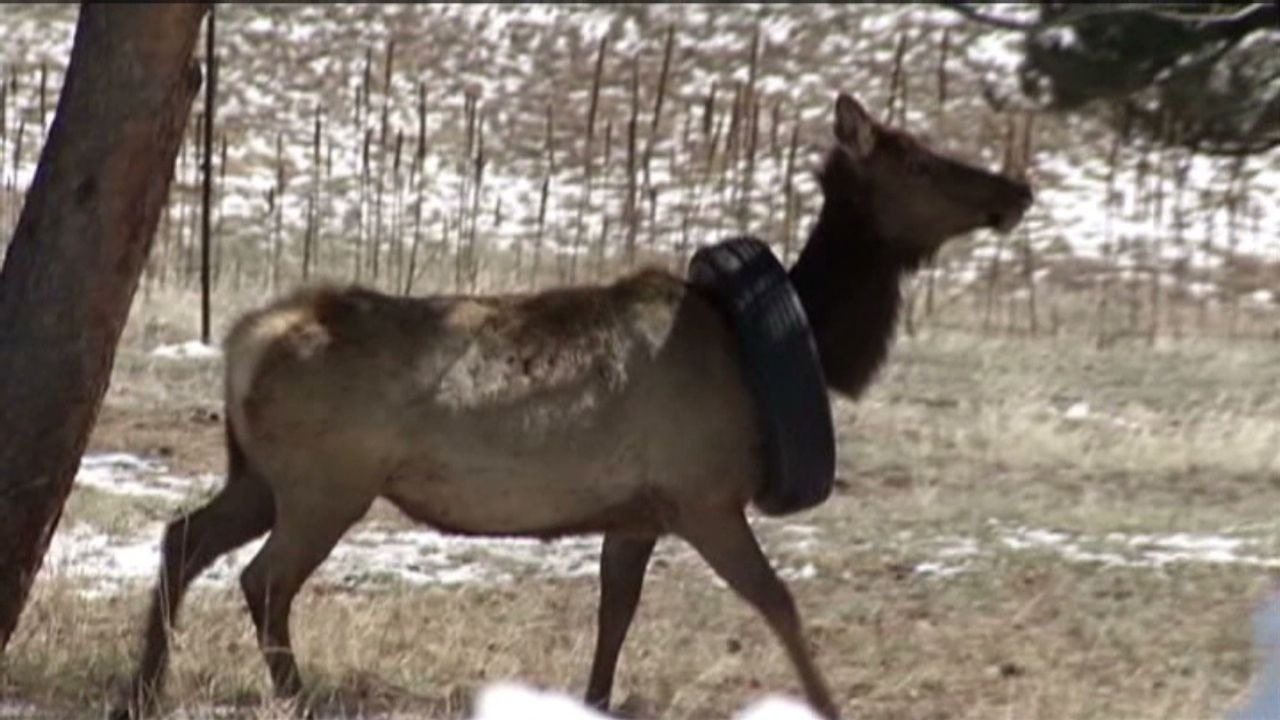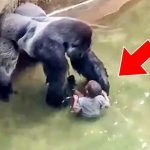For more than two turns of the calendar, a solitary elk in the high country of Colorado wandered beneath the weight of a strange and burdensome collar — a rubber tire, rigid and unrelenting, clutched tightly around its neck. Locals and wildlife stewards observed the animal from afar, watching as each failed attempt to liberate it dissolved into the forest’s shadows. The elk, wary and wild, had outpaced every effort.
Yet with time, the concern grew more urgent. The tire — once perhaps merely awkward — began to press against muscle and bone, threatening not just comfort but life itself.
Then, one quiet day, perseverance triumphed. A wildlife officer, patient and exacting, finally managed to bring the creature down with a tranquilizer dart. As the elk sank into stillness, the team rushed forward. But relief turned quickly to hesitation — the tire, reinforced with a stubborn metal rim, refused all tools. To free the creature, they faced a hard choice: the antlers had to go.
With careful hands, they sawed them off — a small sacrifice for survival. At last, the tire slipped away, thudding to the forest floor like a defeated curse.
Moments later, the elk stirred. Dazed, it rose — wobbling at first, as if awakening from some long and wordless dream. And then, unexpectedly, it paused. With quiet eyes, it looked toward the humans who had helped it. No thrashing retreat, no immediate flight — just stillness. Recognition, perhaps. Or something older, quieter.
And then, it was gone. Into the trees, into freedom. No tire, no yoke, no weight.
The moment stands not merely as a tale of rescue, but as a gentle reminder: even the most unapproachable creatures may carry silent gratitude. And even when words fail, actions echo in the wild.

 Discuss
More news
Discuss
More news


